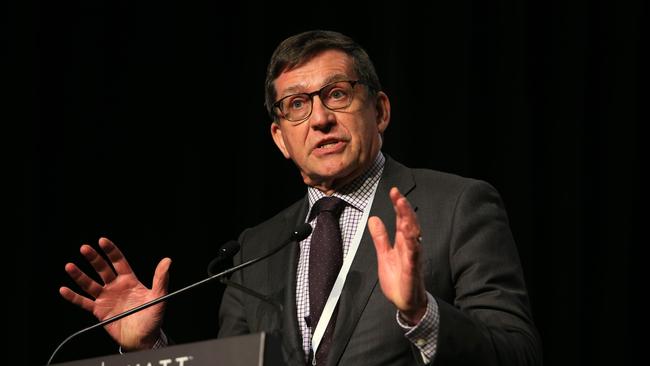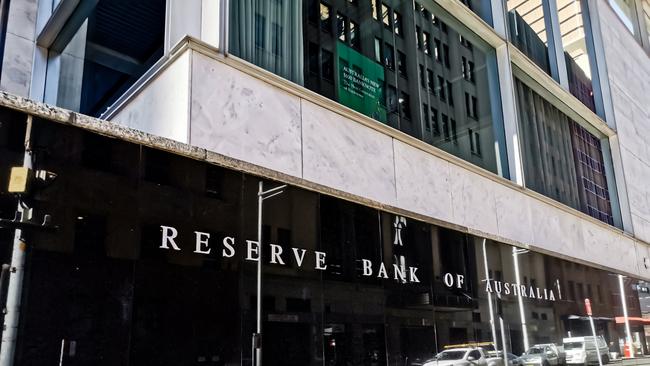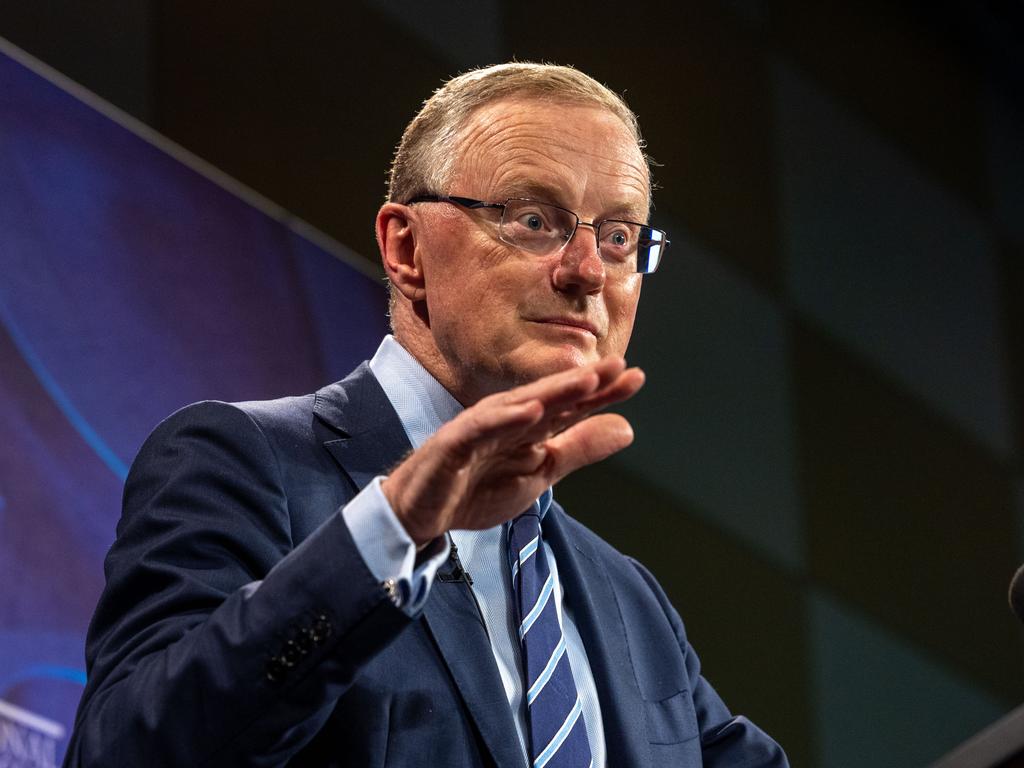RBA mea culpa: We did a terrible job after pandemic
RBA board member Ian Harper says looking back ‘it looks like we did a terrible job’ after the pandemic on its messaging with rate rises.

Reserve Bank of Australia officials on Wednesday conceded the central bank was struggling to curb inflation after its monetary settings reflected an “excessively cautious” stance in the wake of the pandemic, saying their messaging had been ineffective.
RBA board member Ian Harper told a panel in Melbourne that looking back “with the benefit of hindsight ... it looks like we did a terrible job”.
“When you look backwards, often times you see things much more clearly than you do at the time,” he said.
Mr Harper said in the wake of the pandemic, the bank had a hard time balancing its dual mandate of being responsible for the stability of the Australian financial system and keeping inflation within its target 2-3 per cent.
“Both of those things led us to be extremely cautious. With hindsight, excessively cautious in how we set interest rates during that time,” he said.
Mr Harper has been a board member since 2016.
RBA deputy governor Michele Bullock, who joined the board in April 2022, said although the bank’s policy response to counteract the massive shock to the economy from the Covid-19 pandemic was right at the time, it underestimated the combined power of loose fiscal and monetary policy.
She also said the bank’s messaging got “garbled”.

In late 2020 and through most of 2021, the RBA kept rates at a historic low of 0.1 per cent and officials told the country the bank did not expect them to rise for “at least three years”, not until “2024 or later”.
The market took this as an unconditional commitment not to hike them, leading many to borrow more than they would have if they had expected higher interest sooner.
As the economy recovered and inflation rocketed, the bank increased interest rates 10 consecutive times to 3.6 per cent before pausing this month, as it waits to see whether the higher cost of money helps reduce demand and curb inflation.
In November, RBA governor Philip Lowe apologised to Australians who took out too much debt based on the bank’s guidance that rates would not rise until 2024.
Ms Bullock defended the RBA’s communications strategy. “I don’t agree actually that it was unconditional,” she said.
“I will accept .. that the message got garbled. People latch on to a date … and even now that we are raising interest rates, they still want us to put a date on when we are going to stop doing it.
“We should have resisted … a little bit more there.”
Ms Bullock also said that although credit was already tightening in the US and other overseas economies, particularly after a number of banks collapsed because of their inability to manage higher interest rates, Australia had not seen banks tightening conditions to the same extent.
“Overseas, they are tightening,” Ms Bullock said.
“Here there is no sign there’s any tightening in financial conditions because people are worried about the banks or runs on banks. And as yet, it doesn’t seem that the Australian banks are reacting in any way to tight financial conditions. So no, I would say that’s not an issue.”
She did say there was “trouble brewing in the rental accommodation” market because of a shortfall in housing amid rising immigration, which would have implications for inflation “because rental inflation is going to rise … It means we have to continue to watch what’s going on in the housing market because there’s some things that are playing on the downside and there’s other things that are actually going to be playing on the upside for inflation.”







To join the conversation, please log in. Don't have an account? Register
Join the conversation, you are commenting as Logout